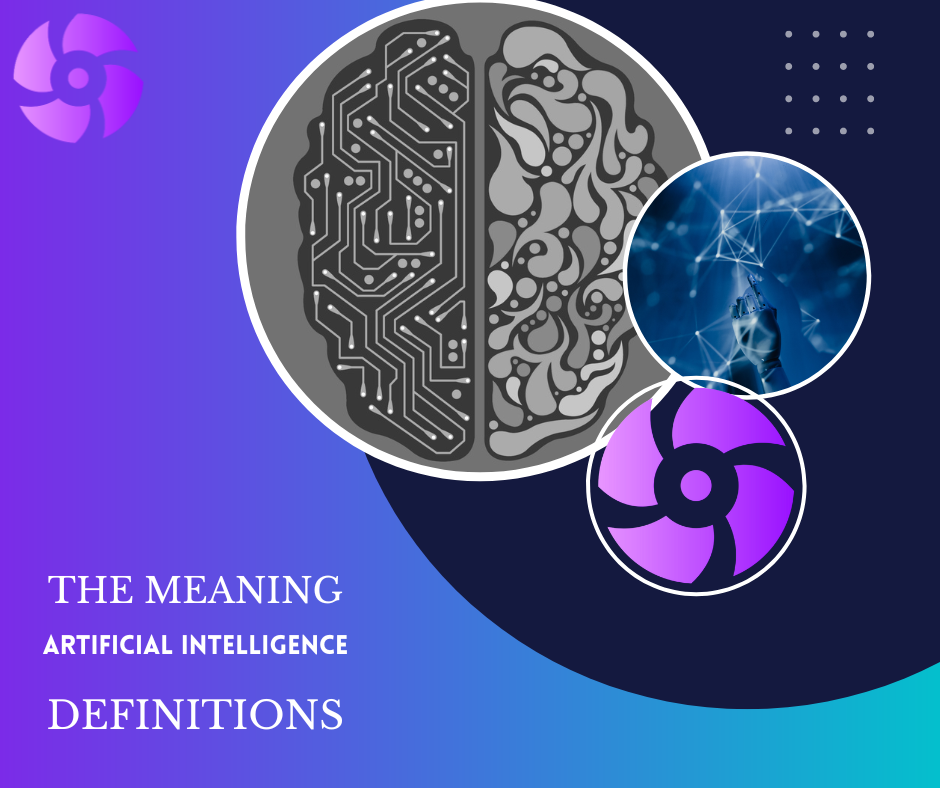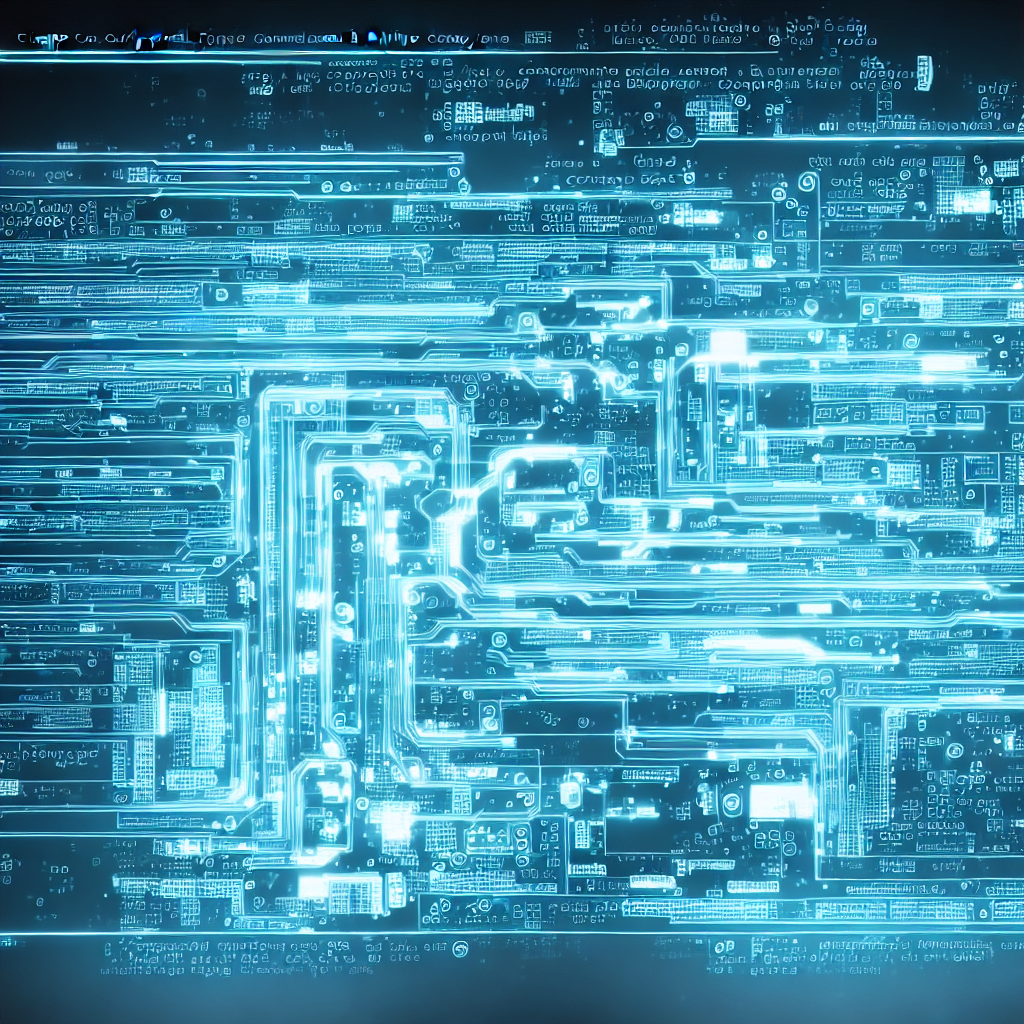AI Meaning: Definitions of Artificial Intelligence

Exploring the World of Artificial Intelligence: An In-Depth Look at the Meaning and Definitions of AI
Are you curious about the ai meaning and the various artificial intelligence definitions? Have you heard the term "artificial intelligence" thrown around, but aren't quite sure what it means?
Well, you're in luck because we're about to delve into the world of artificial intelligence and explore the various definitions of artificial intelligence - and yes, they changed throughout the years and according to different authors.
From virtual assistants like Siri and Alexa to self-driving cars and medical diagnosis, artificial intelligence has the potential to transform the way we live and work.
But what exactly is AI, and how is it defined?
In this article, we'll break it down and explore the different types and applications of this rapidly evolving technology. You'll also learn about the different ways in which AI is used and the various applications it has in different fields.
We'll link you up with some other in-depth articles as appropriate... and don't worry, we won't forget to discuss the challenges and limitations of AI and consider its potential future impact on society and the economy. By the end of this article, you'll have a comprehensive understanding of the ai meaning and the various definitions of artificial intelligence.

The History of AI: To Understand Artificial Intelligence Definitions
The concept of artificial intelligence can be traced back to the 1950s when researchers first began exploring the idea of creating intelligent machines that could perform tasks that would normally require human intelligence.
In 1956, a group of researchers at Dartmouth College held a conference that is now considered a milestone in the field of AI, where they laid out a roadmap for the development of intelligent machines.
Over the next few decades, AI research made significant progress, with the development of expert systems and the rise of machine learning algorithms that could process and analyze large amounts of data. In the 1980s and 1990s, AI experienced a resurgence of interest, driven partly by the rapid advancement of computer technology and the availability of large amounts of data for machine learning algorithms.
In recent years, AI has continued to evolve and expand into a wide range of applications, from self-driving cars and virtual assistants to medical diagnosis and financial analysis - no, not those low-quality trading bots, the real deal. Major players in the field include companies like Google, Microsoft, and IBM, as well as research institutions and startups working on cutting-edge AI technologies.
As AI continues to advance, it has the potential to revolutionize industries and transform the way we live and work. However, it has also raised many ethical and societal concerns, as people grapple with the potential consequences of creating intelligent machines that could surpass human intelligence.
We now believe that with the advent of Chat-GPT, Lensa, Midjourney, and other popular AI tools, the mainstream crowd woke up to this phenomenon.
There are lots of ways to make money with AI now, and people are getting rich by exploiting it before others catch on... but even traditional careers are adapting.

Definitions of Artificial Intelligence: AI Mean
So, what exactly is AI? At its most basic, AI refers to the ability of machines to perform tasks that would normally require human intelligence, such as learning, problem-solving, decision-making, and natural language processing. AI systems can be classified into two main categories: narrow and general AI. Narrow AI refers to systems that are designed to perform a specific task, such as playing chess or recognizing speech. These systems are trained on large amounts of data and use algorithms to learn and improve their performance over time.
If you want to read more in-depth definitions of AI, we have that in our mega-article "Exploring the Top 20 Questions About Artificial Intelligence".
On the other hand, general AI, also known as artificial general intelligence, refers to systems that are capable of performing a wide range of tasks at a level that is equivalent to or exceeds human intelligence. While narrow AI systems are common today, general AI systems are still largely in the realm of science fiction.
Science fiction also makes us fear AI quite a bit, with visions of Skynet and the Matrix clouding our future.
AI systems can also be classified based on how they are trained, with supervised and unsupervised learning being the two main categories. Supervised learning involves training an AI system on a labeled dataset, where the correct output for each input is provided. The system uses this information to learn how to perform a specific task and can then make predictions on new, unseen data.
Unsupervised learning involves training an AI system on an unlabeled dataset, where the system must discover the underlying patterns and relationships in the data on its own. This type of learning is more challenging than supervised learning and is still an active area of research in the field of AI.
If you like deep reads and to really delve deep into concepts, there's no other book in the world of AI as Artificial Intelligence: A Modern Approach - we highly recommend it!
As AI continues to advance, it has the potential to transform a wide range of industries and change the way we live and work. However, it is also important to consider the ethical implications of AI and the potential consequences of creating intelligent machines that could potentially surpass human intelligence.
We are already experiencing ill-uses of AI, like generating fake news.
Developers will - of course - have to consider some serious implications when developing their algorithms, and the stakes are as high as can be.

The Future of AI: Artificial Intelligence Definitions
Congratulations on reading up to this point, I know I can talk a lot when the topic is AI and I'm glad you're just as passionate.
Here's a joke to lighten up the mood for one last stretch:
"Why is the AI so bad at tennis? Because it kept trying to outsmart the ball!"
Now, let's resume:
As AI continues to advance, and so will its meaning, it has the potential to transform a wide range of industries and change the way we live and work. Some experts believe that AI will eventually surpass human intelligence and fundamentally alter the nature of our society and economy.
However, predicting the future of AI is difficult, as it is a rapidly evolving field that is influenced by a wide range of factors, including technological advancements, economic conditions, and societal trends.
In the future, how can we really discern between organic and artificial intelligence - it will be a hard thing if we merge with AI and become a new cyborg species.
Of course, with the constant evolution of AI, what it means will change too.
One potential future direction for AI is the development of more advanced machine learning algorithms that can process and analyze larger and more complex datasets. This could lead to the creation of more sophisticated AI systems that are able to perform a wider range of tasks and make more accurate predictions.
Gone are the days in which an Octopus will predict the results of the World Cup, and people will now flock to AI for the job.
Another possibility is the development of AI systems that are able to learn and adapt more quickly, potentially allowing them to keep pace with the rapidly changing world around them.
Another trend to watch is the increasing use of AI in a variety of industries, from healthcare and transportation to finance and manufacturing. AI has the potential to revolutionize these industries and drive significant efficiency improvements and cost savings. However, it is important to consider the potential impact of AI on employment and the economy, as the use of AI could potentially displace some jobs and create new ones in different areas.
As AI continues to advance, it will be important for individuals, companies, and governments to stay informed about developments in the field and to consider the potential impacts of AI on society and the economy.
AI and access to it will be the most important resources, and that's partially why people are now seeking to tackle AI Careers - they know it's the future.
It will also be important to address the ethical implications of AI and to ensure that it is developed and used in a way that is responsible and beneficial to society as a whole.
In Conclusion:
In conclusion, we have explored the meaning of AI and the various types and applications of this rapidly evolving technology. We have discussed the challenges and limitations of AI and considered its potential future impact on society and the economy.
I really wish you took value from this article, and that you now know what you came looking for - after all, that was the goal.
Thank you for taking the time to read this article. If you would like to learn more about AI, we recommend taking a look at our massive article "Exploring the Top 20 Questions about Artificial Intelligence".
Trust me when I say it's among the most comprehensive resources on AI and it covers a wide range of topics related to AI and provides in-depth insights and answers to some of the most frequently asked questions about this exciting field.
Citations:
- Russell, S., & Norvig, P. (2016). Artificial intelligence: A modern approach (3rd ed.). Upper Saddle River, NJ: Pearson Education.
- Minsky, M. (1986). The society of mind. New York, NY: Simon & Schuster.
- Kurzweil, R. (2005). The singularity is near: When humans transcend biology. New York, NY: Viking.

